Financing is critical for small businesses, influencing their capacity to expand physical locations and undertake larger projects. Most businesses require substantial start-up capital, often leading them to rely on personal savings or contributions from family and friends. Some secure start-up loans, while others navigate early years with limited profits and savings. However, entrepreneurs of color encounter additional barriers that hinder their access to traditional lending opportunities, preventing them from realizing their entrepreneurial aspirations on equal footing with others.
In Kent County, Michigan, the home of WKKF priority place Grand Rapids, Grow is bridging some of these gaps by offering accessible loans to small business owners who are striving to grow their businesses but have faced multiple rejections or haven’t considered applying because they believe traditional lenders will deny them loans.
“We exist because people have been left out of traditional financial systems and those people are oftentimes single women, heads of households, folks of color, those with nontraditional career backgrounds, maybe even those with different literacy skills,” Milinda Ysasi, CEO of Grow said.
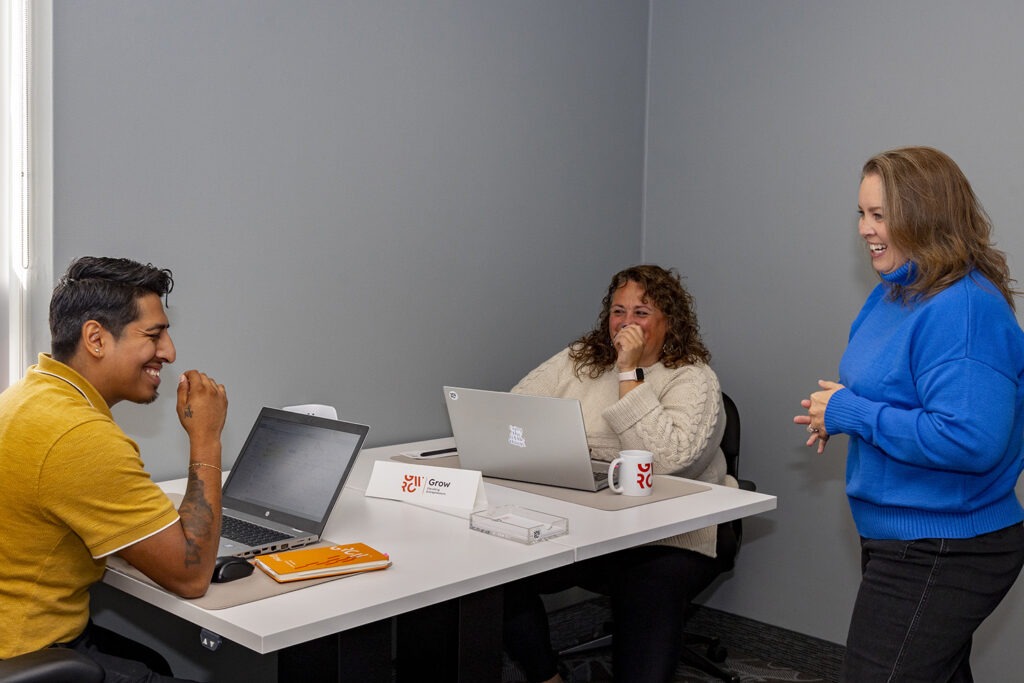
According to 2021 small business data from the Federal Reserve System, businesses owned by people of color were half as likely as white-owned businesses to report that they received all the traditional financing they applied for. For communities of color this discrimination is nothing new. For decades, U.S. banks denied mortgages and loans to applicants of color.
In the past year, Grow has distributed $1,245,700 in 84 loans, with the average loan size of $29,000.
“Often, individuals seeking loans of $50,000 or less don’t qualify through traditional banks due to their lending criteria and business models. Their alternatives typically include high-interest credit cards or predatory payday loans,” explained Ysasi.
What began as an organization focused on supporting women entrepreneurs more than 35 years ago has since expanded into a Community Development Financial Institution (CDFI) to fund small businesses excluded from traditional financing, regardless of their gender.
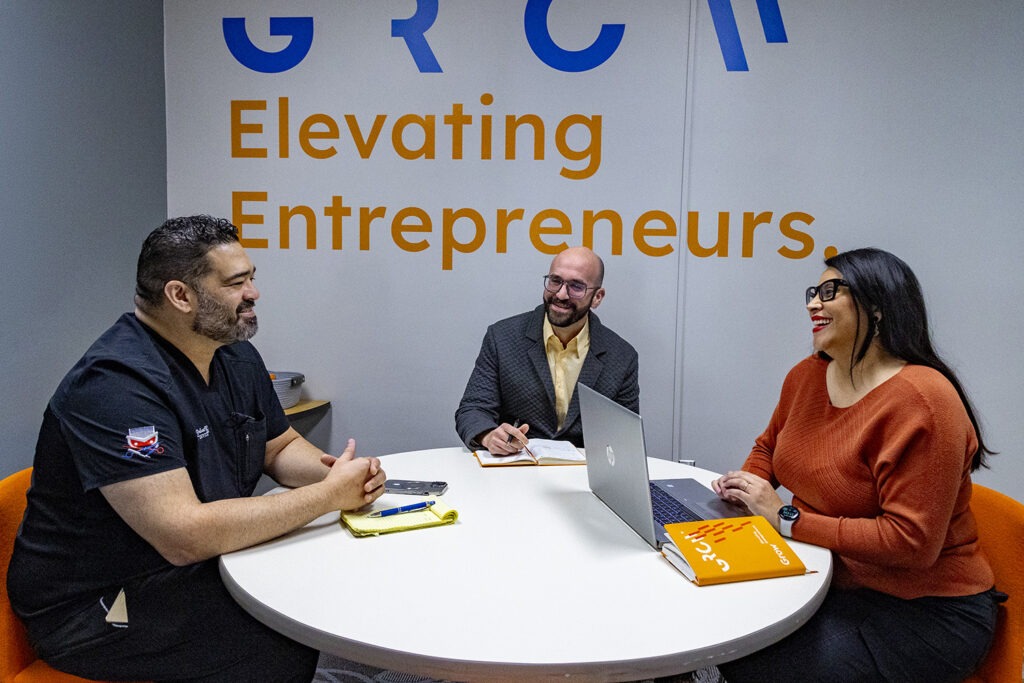
“CDFIs don’t exist to just lend money, but we were created to also have a community or economic pact with the money that we deploy to small business owners – those same business owners who are taking on that immense responsibility of having a business,” Ysasi said.
One business owner that Grow has supported is Seve Hernandez, CEO and co-founder of FCF Drywall. Before he and his wife Irene Hernandez opened their own business five years ago, Seve spent time traveling across the state, working in various construction companies, and learning extensively about building, carpentry, drywalling, and remodeling.
“Five years ago, I decided to open FCF Drywall with the skills I had gained from the various other jobs I had,” Hernandez said. “My goal was to try and create a company that incorporated what I learned into one place.”
The family-owned business has the people power to undertake larger projects but Hernandez said for a long time they were limited in what they could do because of financing.
For Hernandez to accept a contract through a general contractor, he needs enough money in the bank to be able to fund the entire project upfront before receiving payment.
Even though the hiring company does pay a type of down payment, Hernandez is responsible for covering the remainder of the construction cost until the work is finished and he can receive the remainder of the payment for the project. The up-front costs can climb up to $50,000, posing a significant challenge for him as a small business owner looking to undertake projects with higher profit margins.
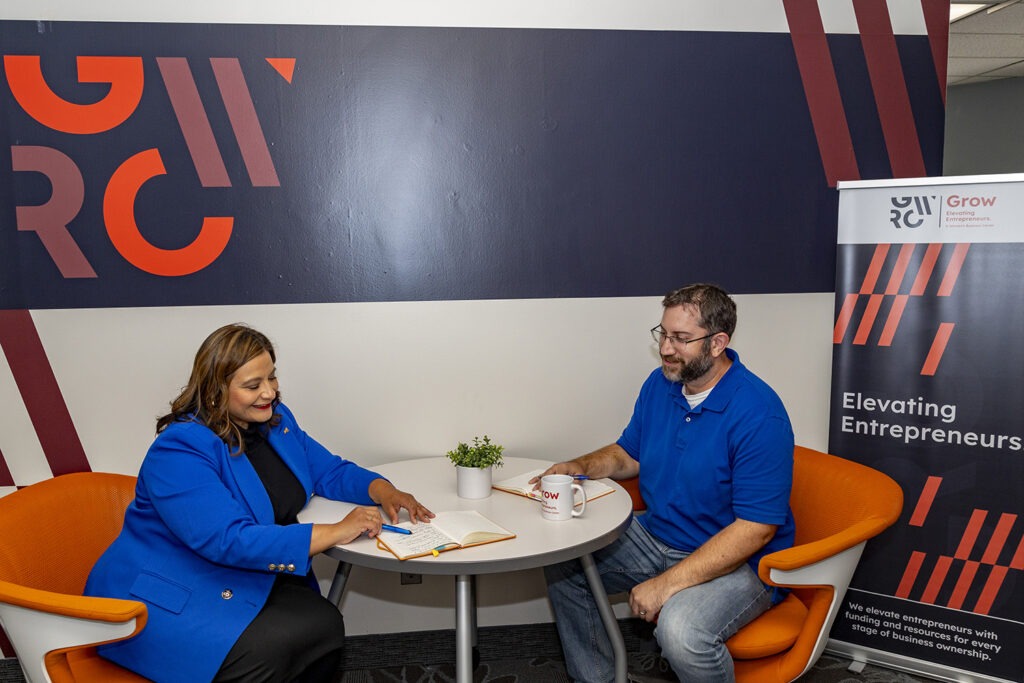
“We need the capital to be able to do the projects, rent the equipment and buy the materials, and if I don’t have that capital, I can’t take on any projects,” Hernandez said.
When Hernandez first connected with Grow, he didn’t have a written business plan, an official way to showcase his business to interested parties, or a profit and cash flow statement demonstrating his expenses and profits.
Up to that point, he had managed without them, but he was having difficulty accessing capital to tackle larger projects.
“I had solidified plans for my business, but they all lived in my head,” explained Hernandez. “It was when I came to Grow that I was really able to sit down and write down what my long-term business plan was for FCF Drywall.”
At Grow, Hernandez not only received resources and training to develop a business plan but also successfully applied for the capital needed to undertake his company’s largest project to date.
“The monthly payments I qualified for are much more affordable than what I would have been able to access at the bank,” he added. “The line of credit I have at the bank has a 12% interest rate, but at Grow it’s around 4%, so it was much more convenient for me to go through Grow than the bank.”
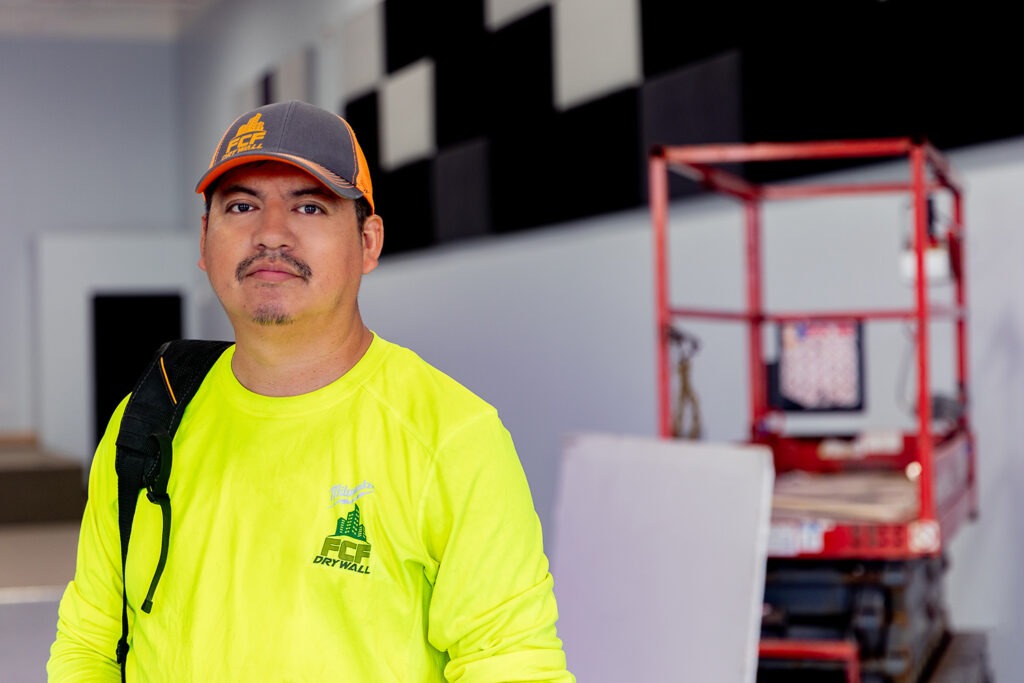
Having that capital allowed Hernandez to apply for other contracting jobs at the same time he was undertaking the project financed through the Grow loan. In addition, he received personalized one-on-one attention in Spanish, the language in which he feels most comfortable communicating.
“Before I even started my own business, I had to save three years just to have enough money to take on projects,” he said. “The money from Grow helped me bypass having to wait until I could take on additional projects.”
Since connecting with Grow Hernandez has become accredited by the Better Business Bureau, certified by Micro Local Business Enterprises and the Michigan Housing Development Authority as contractor for Section 8 housing.
As his business expands, Hernandez eagerly anticipates the day he makes the final payment on his Grow loan, confident that he knows where to turn if he ever needs another loan.
Supporting businesses like Hernandez’ is one way the W.K. Kellogg Foundation (WKKF) funding is working to ensure all families and children can thrive, says Tracie Coffman, WKKF program officer.
“Children live in households and families with adults, and these adults need access to economic opportunity in order to support their children,” Coffman said. “Our children cannot thrive if their families are living in poverty and having such a substantial racial wealth gap.”
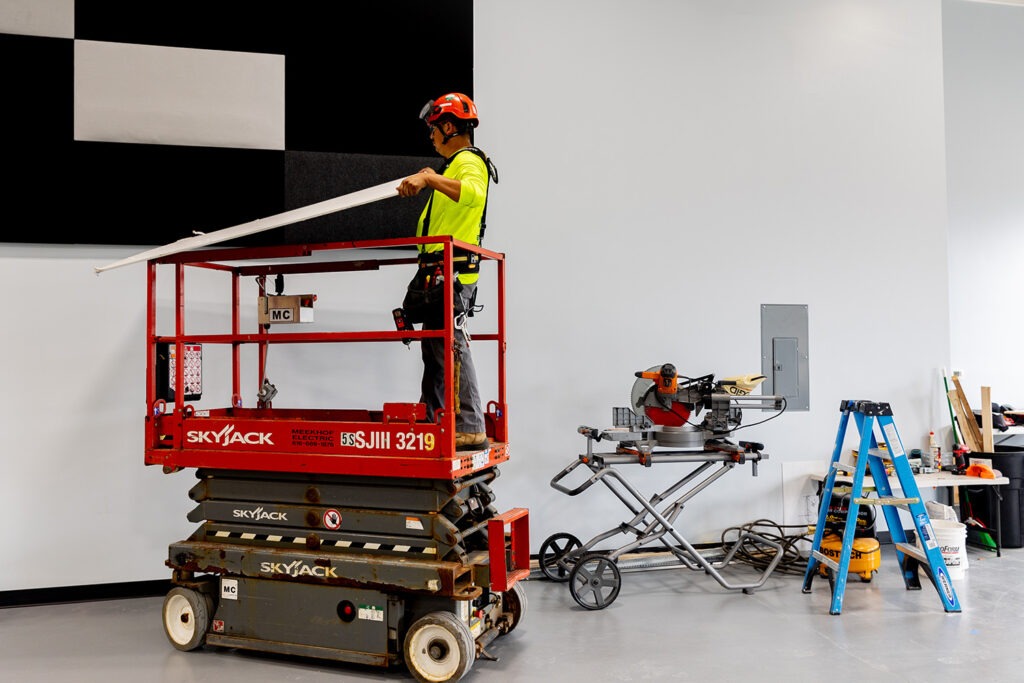
By 2027, WKKF will have invested $1 million to support Grow’s business loans for entrepreneurs.
Data from the 2023 Institute for Women’s Policy Research demonstrates that Black women in Michigan make 57% less than their White male counterparts, which amounts to a gap of over $20,000 a year.
“We see entrepreneurship as both an economic opportunity for families, but also as potential wealth creation,” said Coffman. “Entrepreneurship and homeownership are two paths to wealth creation.”
While Latino-owned businesses like Hernandez’ outpaced White-owned businesses in revenue growth according to Stanford’s 2022 State of Latino Entrepreneurship report, they have lower approval rates for loans than their White counterparts.
Similarly Black business owners are more likely to experience downward economic mobility and less likely to experience upward mobility compared to their White counterparts according to a 2021 study from the Journal of Economics, Race, and Policy.
This suggests that enhancing the success rate of Black and Latino entrepreneurs, rather than increasing the rate at which Black people become entrepreneurs, is a more effective approach to reducing the racial and ethnic wealth gap.
“We need a strong ecosystem that has multiple lending opportunities and options for small businesses so they can pick who they’re comfortable with and who has the best product for them,” said Coffman.
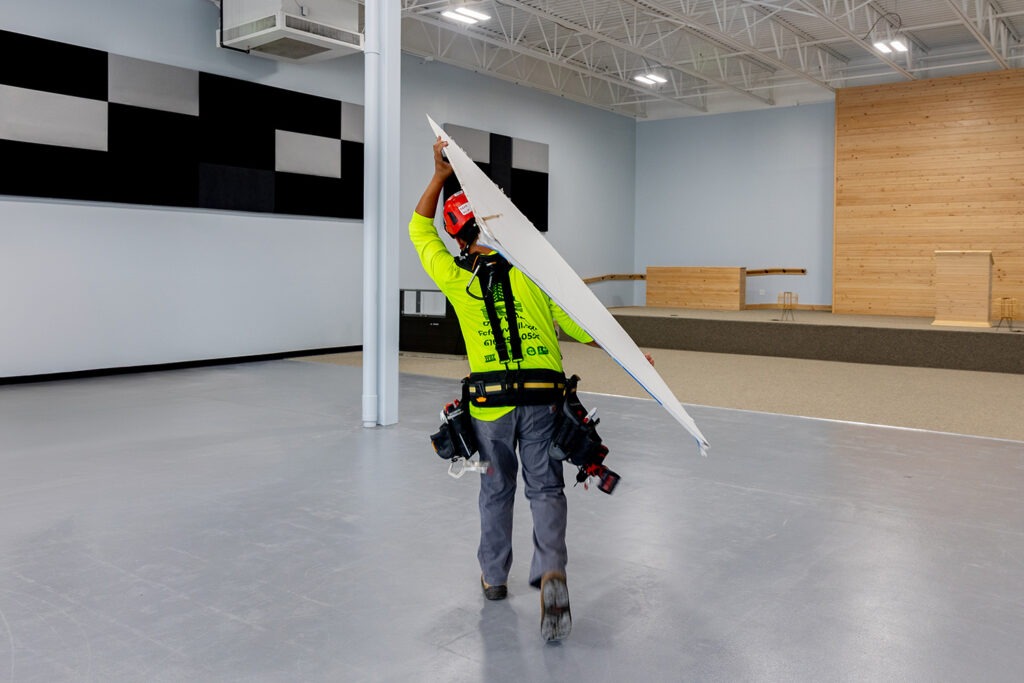
Among Grow borrowers, 71% identify as people of color, with 36% identifying as Black, 33% as Hispanic or Latino, and 2% as Asian American. The primary industries represented are food service, retail, construction and transportation.
Access to financing is one way to ensure entrepreneurs can be successful long term according to Grow’s lending manager, Ben Oliver.
“Business owners are coming to us having had negative experiences with traditional lending institutions and not knowing what a CDFI can do for them,” said Oliver. “At Grow we really focus on making responsible loans.”
A responsible loan, according to Oliver, is one that ensures that a business owner has the capacity at the time of application to repay the loan without being overburdened. Grow typically offers loans ranging from $500 to $50,000 for entrepreneurs, with a minimum threshold rarely dipping below $5,000.
“Because most of the businesses that we work with are startups or fairly new businesses, we look at their cash flow individually and with their business,” said Oliver. “So that means looking at their household expenses, personal and business debts, as well as their business expenses and their sources of income.”
For Grow, it’s not just about providing that capital to businesses, it’s also about providing resources and knowledge so that entrepreneurs can be successful into the future. It’s also about ensuring the business owner is able to pay off their loan and that Grow can continue to make more loans to other entrepreneurs.
“What we’ve found is, after we make the loan, then that’s actually when the impact begins and when we put that capital into action,” Oliver said. “We want to help the entrepreneur make the impact they intended to with the capital they received. That means having a relationship with them and being a trusted resource throughout the life of the loan and beyond.”

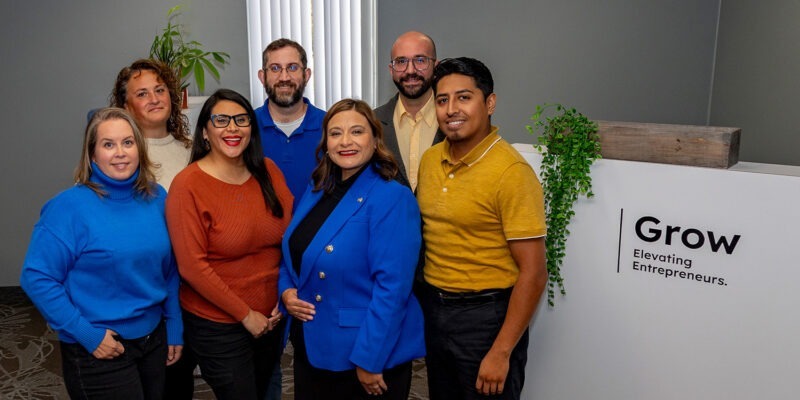




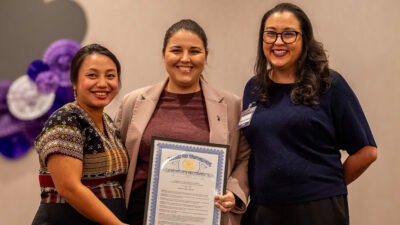
Comments